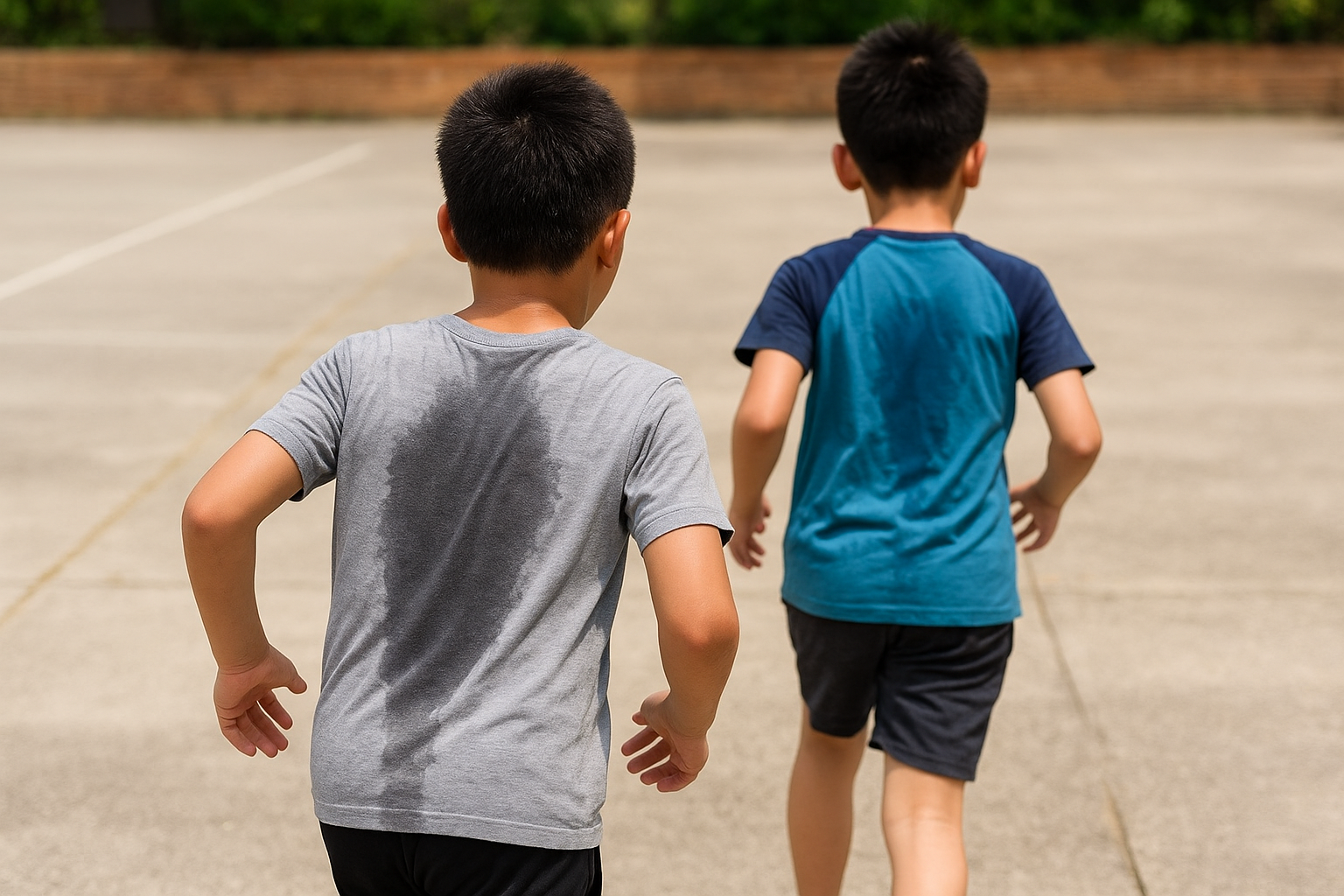The Hanoi woman first noticed her son's unpleasant body odor last summer. Her online research led her to alarming articles claiming body odor was a chronic condition. Trang tried various remedies, from store-bought deodorants to homemade concoctions of baking soda and lemon.
Her son cooperated for exactly one day. The next day, he refused to use anything, despite his mother's pleas. When she tried to apply the lemon mixture, Bi protested vehemently. Exasperated, Trang invested over 5 million VND in a spa treatment to eliminate the odor.
After three sessions, the smell persisted. The familiar scene of discarded clothes and socks strewn across the house remained. "Sometimes I feel like the whole house reeks of him," she said.
Ngoc Minh, 38, from Quang Tri, faced a similar predicament. She resorted to a drastic measure, taking her 13-year-old son's recently worn shirt, letting it sit for a few hours, and then having him smell it. "This is what others smell when they're near you," she explained.
Her son's response: "What's the big deal? Everyone in my class is the same."
During the summer, Tuan Anh showered daily, albeit hastily. In winter, he showered only every few days, ignoring his mother's scolding. He discarded his clothes wherever he took them off, even sleeping in his uniform.
 |
During pre-adolescence and puberty, children sweat more. Illustration: AI |
Ngoc Minh and Thu Trang joined an online parenting group, seeking advice and commiserating with hundreds of other mothers facing the same issue.
"It turns out this is a common experience for many teenagers; my son isn't an exception," Trang said, feeling relieved.
Experts explain that body odor and uncooperative behavior are typical during puberty, stemming from biological, psychological, and medical factors.
Biologically, Nga Sinh, a master's degree holder and sex education teacher in Hanoi, explains that during puberty, apocrine sweat glands in the armpits, chest, and genital areas become more active. These glands secrete proteins and fats that serve as food for bacteria on the skin. When bacteria break down these substances, they produce an unpleasant odor.
A 2024 German study even revealed that teenagers' body odor can emit a distinct cheesy or goaty smell.
What frustrates parents is that many teens have poor hygiene habits. Many neglect showering, changing clothes, or washing their clothes properly, intensifying the odor and potentially leading to skin problems.
"Apocrine sweat glands are activated and peak during puberty, gradually weakening with age but never completely stopping," Nga Sinh explained.
Besides biology, psychology also plays a role. Nguyen Le Thuy, a psychology and education expert from the Pioneer and Children's Newspaper, believes teenagers experience significant emotional fluctuations, lack self-awareness, and are prone to stubbornness. Criticizing their odor can make them feel attacked, leading to defiance or resignation.
Like Tuan Anh, Ngoc Minh's son, who was teased about his weight at school, also faced constant reminders from his mother about his body odor. "Mom always criticizes me for being fat, ugly, and smelly," he said.
Discouraged, Tuan Anh thought, "Nothing I do will change anything," so he ignored the issue.
Psychologist Le Thuy advises parents to be patient and offer gentle, science-based reminders. "With a calm and rational approach, they will eventually understand," she said.
According to Nga Sinh, the best approach is to teach children proper hygiene from an early age, around 4-5 years old. Habits like putting dirty clothes in the hamper, changing socks daily, and showering regularly should become ingrained. Teenagers should shower 1-2 times a day with mild soap, thoroughly cleaning their armpits, groin, and navel. Clothes, especially underwear, should be changed after school or physical activity and washed immediately to prevent bacterial growth.
When sweating heavily, parents can remind their children to dry their armpits and trim their underarm hair to facilitate evaporation. Cotton or natural fiber clothing also helps absorb sweat.
Natural remedies like lemon, apple cider vinegar, betel leaves, or green tea can be used for underarm hygiene, or parents can choose safe deodorants with mild fragrances.
Dietary adjustments are also essential. Limit spicy, oily, and garlic-heavy foods. Adequate sleep and a relaxed mindset can also reduce apocrine sweat production.
When a child reaches puberty and develops body odor, parents should offer support rather than criticism. Gifting natural deodorant for a birthday, presented as a confidence booster, can be helpful.
Explaining the consequences of poor hygiene is also important. For instance, neglecting hygiene can lead to social isolation and skin problems. "Children need to understand that hygiene is for their health and confidence, not just to please their parents," Nga Sinh emphasized.
Thu Trang's efforts proved futile until an unexpected motivator emerged: her son developed a crush on a classmate.
"She's in his class and also in his evening English group. He sits next to her, so he wants to smell good and has improved his hygiene," the mother recounted.
*Names have been changed.
Pham Nga












